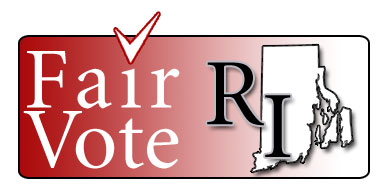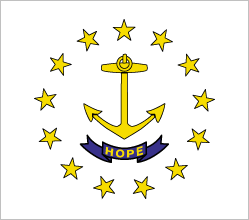Rhode Island is firmly on the sidelines when it comes to presidential elections. We are ignored by both parties in the Presidential contest because the results in Rhode Island are a foregone conclusion. Our electoral votes are locked into the state-by-state, winner-take-all system, making our votes as individual Rhode Islanders irrelevant. Candidates don’t come here or familiarize themselves with our issues, and campaigns don’t spend money here. We are essentially shut out of presidential politics.
During the general election season, presidential and vice presidential candidates visited similarly-sized New Hampshire for 12 public campaign events between September 5th and November 4th. They did not hold a single public event in Rhode Island, although then-Senator Joe Biden did visit for a $1,000 per ticket fundraiser.
As Rhode Island’s concerns were being ignored, its businesses were also being hurt by an absence of the spending vibrant campaign operations bring. Between September 24th and November 4th, the major candidates spent $2,924,839 on television and radio ads targeted in New Hampshire—and $0 in Rhode Island.
Despite a 5.7% increase over 2004, Rhode Island ranked 32nd in voter turnout in 2008, behind 13 of 15 battleground states. Rhode Island likewise ranked 37th in 2004.
Contrast that reality with the 2008 Rhode Island presidential primary: with only a few delegates at stake, major candidates campaigned in the Ocean State, courting our votes and pumping hundreds of thousands of dollars into our economy.
Small states like Rhode Island are almost all spectator states in the Presidential election. 98% of the 2008 campaign events involving a presidential or vice-presidential candidate occurred in just 15 closely divided “battleground” states. Over half (57%) of the events were in just four states (Ohio, Florida, Pennsylvania and Virginia). Similarly, 98% of ad spending took place in these 15 “battleground” states. This means that two thirds of the states, including Rhode Island, were ignored by the presidential campaigns. Nationwide, this lack of interest in “safe” states had a serious effect: turnout was 6% higher in the “battleground” swing states.
Electing the President by national popular vote would mean that our votes here in Rhode Island would be worth the same as a vote in Florida and Ohio. Republicans and Democrats alike would vote knowing that their contribution counted directly toward their favored candidate.
The National Popular Vote Compact (NPV) is the best way to achieve real reform to our presidential elections, and move past a system that leaves most states out, and can produce winners who lose the popular vote.
Read more about the compact at nationalpopularvote.org. Here's their three-sentence explanation of how the plan works:
Under the U.S. Constitution, the states have exclusive and plenary (complete) power to allocate their electoral votes, and may change their state laws concerning the awarding of their electoral votes at any time. Under the National Popular Vote bill, all of the state’s electoral votes would be awarded to the presidential candidate who receives the most popular votes in all 50 states and the District of Columbia. The bill would take effect only when enacted, in identical form, by states possessing a majority of the electoral votes—that is, enough electoral votes to elect a President (270 of 538).
With support from Senate sponsor Daniel Connors and House sponsor Donald Lally, NPV is moving forward in Rhode Island. Former Senator Lincoln Chafee wrote a letter to members of the General Assembly on why he supports NPV.
A recent poll also showed that 74% of Rhode Islanders want a national popular vote for president, across party and ideological lines.
On May 27th, 2008, the RI State Senate passed S 2112, the National Popular
Vote compact, with a 27-10 vote. On June 19th, 2008, the RI House passed the
bill on a 36-34 vote. On July 3rd, 2008, Governor Carcieri vetoed the national popular vote compact. In 2009, FairVote will work to get the national popular vote bill passed with a wider margin.
Let your legislators know that you support a National Popular Vote for president, and tell them you support this key democracy reform. Click here to join the email campaign for the National Popular Vote.

